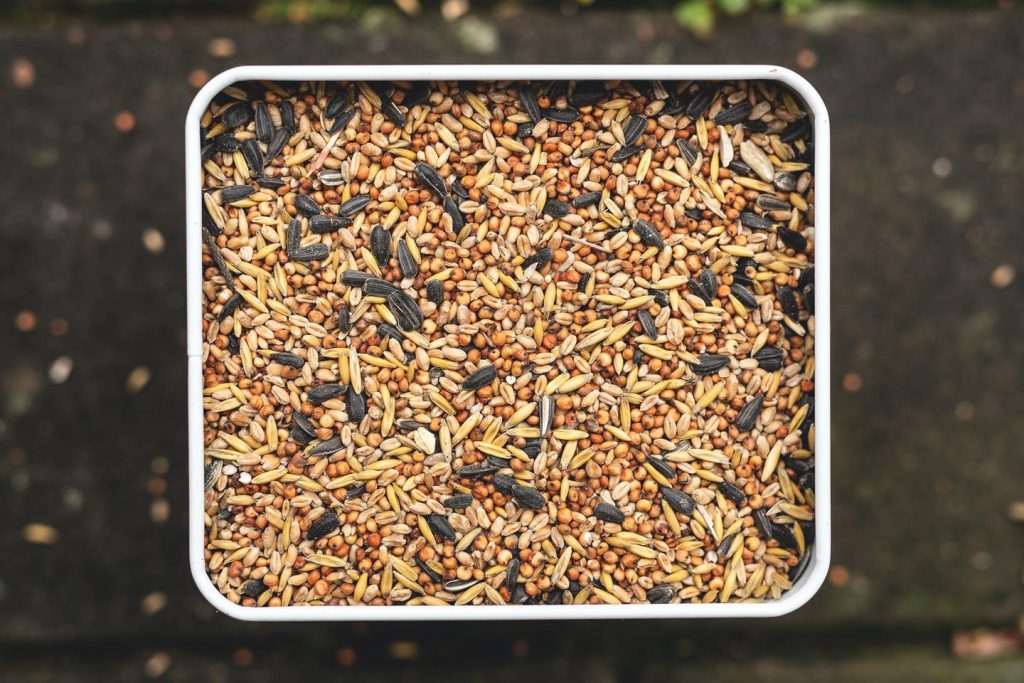
Jesus said, “Listen then to what the parable of the sower means: When anyone hears the message about the kingdom and does not understand it, the evil one comes and snatches away what was sown in his heart. This is the seed sown along the path. The one who received the seed that fell on rocky places is the man who hears the word and at once receives it with joy. But since he has no root, he lasts only a short time. When trouble or persecution comes because of the word, he quickly falls away. The one who received the seed that fell among the thorns is the man who hears the word, but the worries of this life and the deceitfulness of wealth choke it, making it unfruitful.”
The person who is described as the path (or road) is the one who is so busy they can’t or won’t take time to reflect and contemplate what God is doing in their lives. The seed of the message of the Kingdom sits on the surface and does not even get planted – becoming nothing but food for that which lives in the air to pick off. The person who Jesus describes as ‘rocky places’ is the soul who doesn’t die to self on anything. There is no decomposing organic matter for the seed of Good News to germinate in. They are unable to hold in any of the water that is the Spirit’s refreshing presence. Those who are described as patches of thorns are those who might look green and fruitful, but are actually that which chokes out more useful vegetable life and/or protects ‘their fruit’ to the hurt of the He who would gather it. In the end, the condition of all three (road, rock and thorns) is the same. Unfruitfulness. Yet God told us all, “My Father is glorified by this, that you bear much fruit, and so prove to be My disciples.”
A lack of fruitfulness is not a condemnation. It is a warning. A clear indicator that we are not doing what the Lord would have us to do. Seeing the lack is a decision point. Either we take corrective action to correct the condition of our soul so it can produce fruit, or we remain as we are. A useful field – a profitable patch of ground – is ground that is cultivated. Ground that has been cared for – stripped of stones and rocks, mixed well with organic matter and ready to receive the seed the farmer purposes to sow without restriction. But uncultivated land is full of unhelpful things. It might be rocks or thorns, but the result is the same. It will not produce fruit. That is a serious problem for the owner is wants fruitfulness.
A farmer who does not find enough fruitfulness from what grows on his property will eventually take action. They will prune back what is growing (John 15:2), dig down and put fertilizer around it (Luke 13:8) or rip out what unhelpful thing is growing and throw it in the fire (John 15:6, Luke 13:7). So if we notice a lack of fruitfulness in our lives, we know we have move quickly to cooperate with what the Lord is purposing to do.
Obviously, fruitfulness takes many forms. Not all fruit is external. Fruitfulness can also be internal. As shade trees and ornamental plants are pleasing to the eye and make pleasant habitat for creation, so the fruit of the Spirit is quiet and discreet. But whether external (bringing blessing to others) or internal (being a blessing to those who are near), the fruitfulness of our lives ought to be evident to all who look on!
Amen.
What does the tree suggest? Strength and stability! Fruitfulness! Beauty! Refreshing shade! All of these things are found in the one who delights in the Word of God. And the degree of the delight is the degree to which they are found.
Roger Ellsworth
APPLICATION: Thankfulness
PTL, as Matthew Henry put it, “We sit down under Christ’s shadow with delight, and by it are sheltered from the scorching heat of the curse of the law.”










